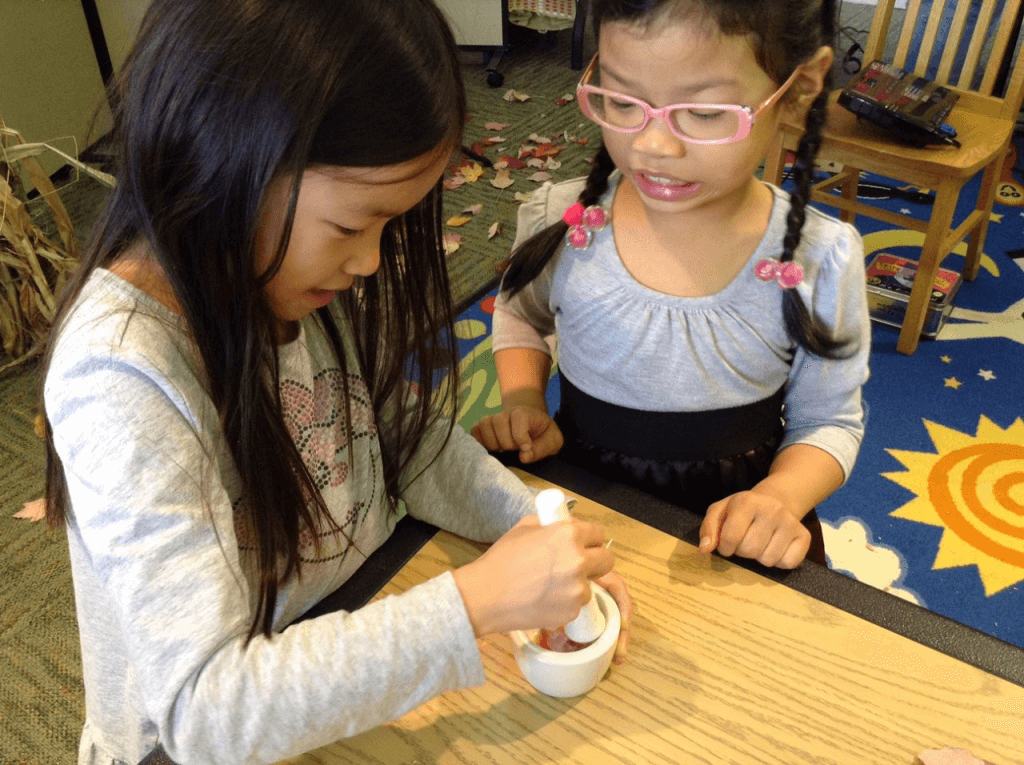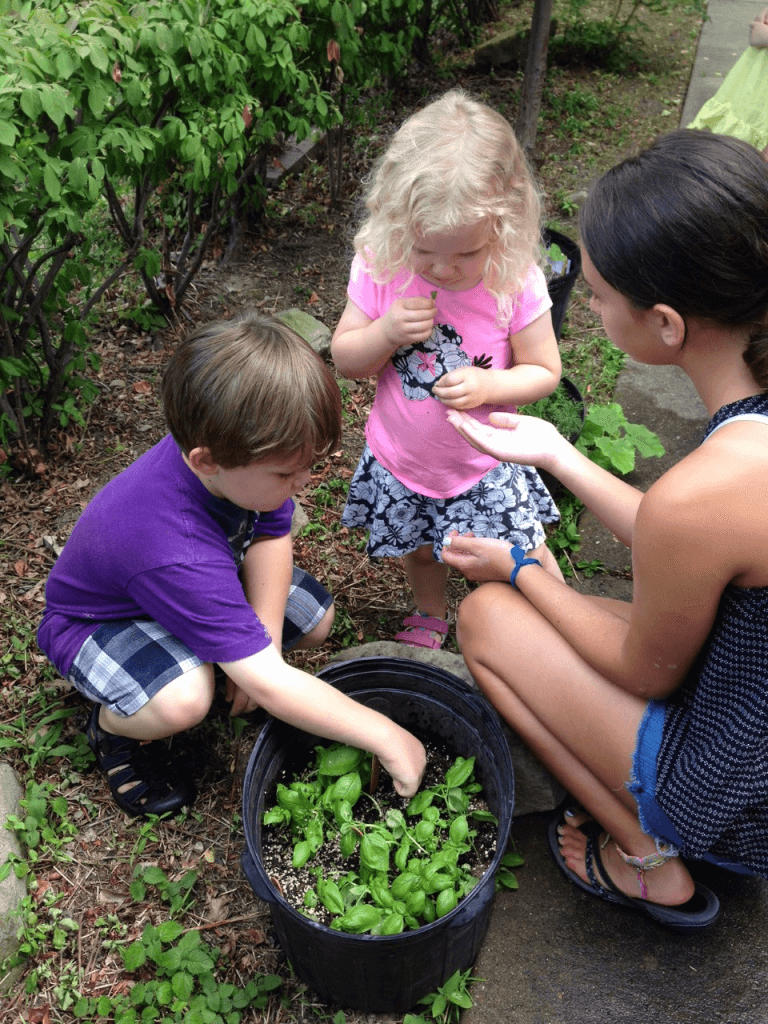Tuesday afternoons in the Children’s Department at Carnegie Library of Pittsburgh – Main are filled with enthusiasm and the sound of active learning. Homeschool students and their adults gather to share in a lively program series that supports and supplements their educational experience. Through books, digital technology, discussions and hands-on activities, children in grades K-5 explore a variety of topics and make new friends.
When Homeschool Explorations began three years ago there was a definite call to answer the needs of Pittsburgh’s homeschool families. There was a homeschool community, but no library program specifically designed for that audience. The challenge was how to make programs, resources, and the library a trusted and consistent place for their educational experience. The answer? Create and grow a relevant and sustainable program series that supports and enhances the homeschool learning experience.
We began by identifying the homeschool community’s needs, interests, and what they wanted in an ongoing program series specifically designed for their families. This included programs that align with Pennsylvania state standards and incorporate technology and STEM. Creativity and art also became large components integrated into hands-on activities that engage a range of ages.

Resources and support for homeschool families was another objective. Now, every week while their children participate in the Homeschool Explorations program, the parents meet regularly around tables to talk. Although the program is scheduled from 2:00-3:00 PM, it has become an event lasting the entire afternoon with families hanging out, using library books and materials, and engaging staff. It’s a very family-oriented time with toddlers and babies exploring the space. The Children’s Department has a strong relationship with homeschool families because they make the library an ongoing part of their homeschool experience – their source for lifelong learning.
We ask for feedback from families and are aware of their changing needs resulting in a continuing dialog. Last year, as the tweens became older the weekly group became younger. We responded with a different presentation format that was engaging and age-appropriate. Being open for change and adapting new approaches keeps Homeschool Explorations relevant.
“We love the historical and scientific explorations, as well as the art. By giving my kids a chance to explore new ideas and information as part of a group, this has been a very positive experience and we look forward to more classes.” – Homeschool parent
STEM program components enhance Homeschool Explorations through scientific inquiry, observing, questioning, predicting, investigating, interpreting, and sharing. Whether it’s building a toothpick and marshmallow structure, a raceway from cardboard tools, or creating shadow puppets, kids soon discover this is fun and we observe they are learning by trying. When an activity doesn’t work it’s just a part of the process. Children are so enthusiastic they want to continue building and testing, and often they suggest what we should do next. After all, what good are shadow puppets without a theater? With the help of parents we had enough boxes for each student to create their own puppet stage the next week!
We also integrate technology from the start by adding a laptop, projector, and screen. Photos, webcams, databases, and videos inspire investigation and discussion. A system-wide technology pilot provided iPads to use regularly system-wide in a way that supports literacy, learning, and standards. Technology and apps are ongoing components in programming. Tech Days happen regularly with stations around the room featuring robots, iPads, activities, and new additions to our technology.
Drawing, nature journaling, paper engineering, or any creative activity relating to art is also extremely popular and gives participants additional insight into history, STEM, and language arts. Fairy Houses and Terrariums connect and blend Scientific Inquiry and the Engineering Design Process in a dynamic and artistic way. Artful Stories programs introduce children to a specific artist and that artist’s work through a read-aloud, discussion, and hands-on activity. Children have a greater understanding of the creative process, explore the specific art medium, and learn related vocabulary.
Warmer weather means going outside to explore and observe nature. Participating in the Community Garden and talking about different types of gardens from planning to planting to harvest and putting the gardens to bed supports learning by doing. Celebrating with a harvest festival comes full circle with assessing, planning, and preparing for next year’s growing season.

Tuesday afternoons with our homeschool families are a relevant and important part of Children’s programming. We have the privilege of being a part of their lifelong educational experience, and at the same time learn from them through their questions, enthusiasm, and observations. We can’t wait to see where they take us next!

